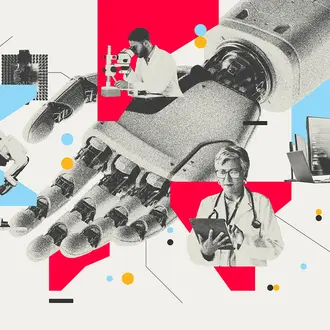Leadership
How Dell, Square, and Wayfair think beyond a crisis
Leading a team and satisfying customers isn’t easy in a crisis. Here’s how three chief financial officers did it — and what practices they’ll keep in the future.
Today’s job description for a chief financial officer looks very different than it did a year ago, with COVID-19 expanding the roles that CFOs are playing in their organizations. In addition to financial planning and risk management, they’re spending their time identifying digital opportunities, redesigning office workspaces, and — yes — cultivating empathy.
At the recent MIT Sloan CFO Virtual Summit, CFOs from Dell Technologies, Square, and Wayfair talked about the ways in which the pandemic changed their responsibilities and how they’re formulating strategies for the future.
Square, for example, is focusing on doing what it takes to keep customers happy in the present in order to keep them in the long-term, said Amrita Ahuja, CFO of the mobile payments company.
Meanwhile, Dell Technologies is exploring digital growth opportunities, said CFO Tom Sweet, and, among other priorities, Wayfair is focusing on the need to cultivate empathy in the workplace.
Having worked through 9/11 and the 2008 – 2009 financial crisis, Wayfair’s CFO Michael Fleisher said that crisis is inevitable but still provides plenty of learning opportunities.
“As leaders, you hopefully learn something that makes you better for the next one,” Fleisher said. “You sort of hope the next one doesn't come, but they always do.”
Read on to learn the strategies they shared on their panel, “Leadership: Thinking Beyond a Crisis.”
Give your customers a break
Square decided to refund software as a service (SaaS) fees to its customers in March and April 2020 at the onset of the pandemic, a decision that meant “doing what was right for the long term for that customer relationship, even though it created a short-term negative impact to us,” Ahuja said. The company also allowed customers to pause subscriptions and even offered some services for free in certain circumstances.
“We created free tiers for some of our vertical points of sale that serve restaurants, retailers, and services,” Ahuja said. “We knew they were going through so much. They needed extra cash flow in their pocket.”
Embrace empathy as a leader
Even in non-COVID-19 times, transparency has always been a big part of Wayfair’s culture, Fleisher said; the pandemic brought it to “a new level.”
With so many people now working from home and communicating online, Fleisher said he has enjoyed getting a glimpse into the homes of his colleagues, a “tiny snapshot window view.”
“It's opened up this need to probably expand that aperture a little bit and ask people more about what's going on in their lives,” Fleisher said. “I think our job as leaders is both sharing our own concerns and our own challenges, but also asking about everybody else's.”
Remote work has “changed our role as leaders in a way,” Fleisher said, “and I think empathy’s a good word for it.”
Rethink your workspaces
Related Articles
What will the 9-to-5 life look like after the pandemic? Square surveyed its employees to find out what they wanted. The majority of its staff — 70% — want flexibility to work from home some days and go into the office on others.
“What that means for us is we're not losing our office footprint,” Ahuja said. “We need to create a more flexible office footprint, which means we're probably not going to have dedicated desks.”
Instead, Square plans to have hoteling desks and large, social spaces where people can get together and collaborate in person.
“There's going to be a reformatting of the offices that comes from this, but there's still very much a purpose for office space and for bringing our employees back together from time to time,” Ahuja said.
Plan for a digital-first reentry
Having led their organizations through the dark days early in the COVID-19 outbreak, financial executives are now facing another difficult challenge: how to transition to life post-pandemic. Executives at Dell have already started thinking about how to allocate their resources.
Said Sweet, “There are technology trends that are happening. Digital transformation has accelerated. Let’s make sure we've got resource allocation and capital allocation focused properly on what the company should look like post-COVID-19.” As one example: Dell is now doing its quarterly closes virtually.
Developing new capabilities and new areas of growth are also top of mind for Dell, though Sweet acknowledged that “it's going to be awhile before we come through the COVID-19 cycle.”




